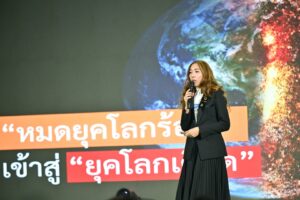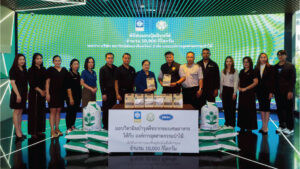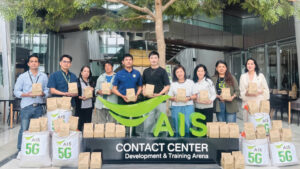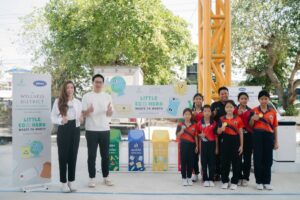
Bangkok launches “BKK Zero Waste” to build on the “Don’t Mix Waste” campaign
Bangkok launches “BKK Zero Waste” to build on the “Don’t Mix Waste” campaign

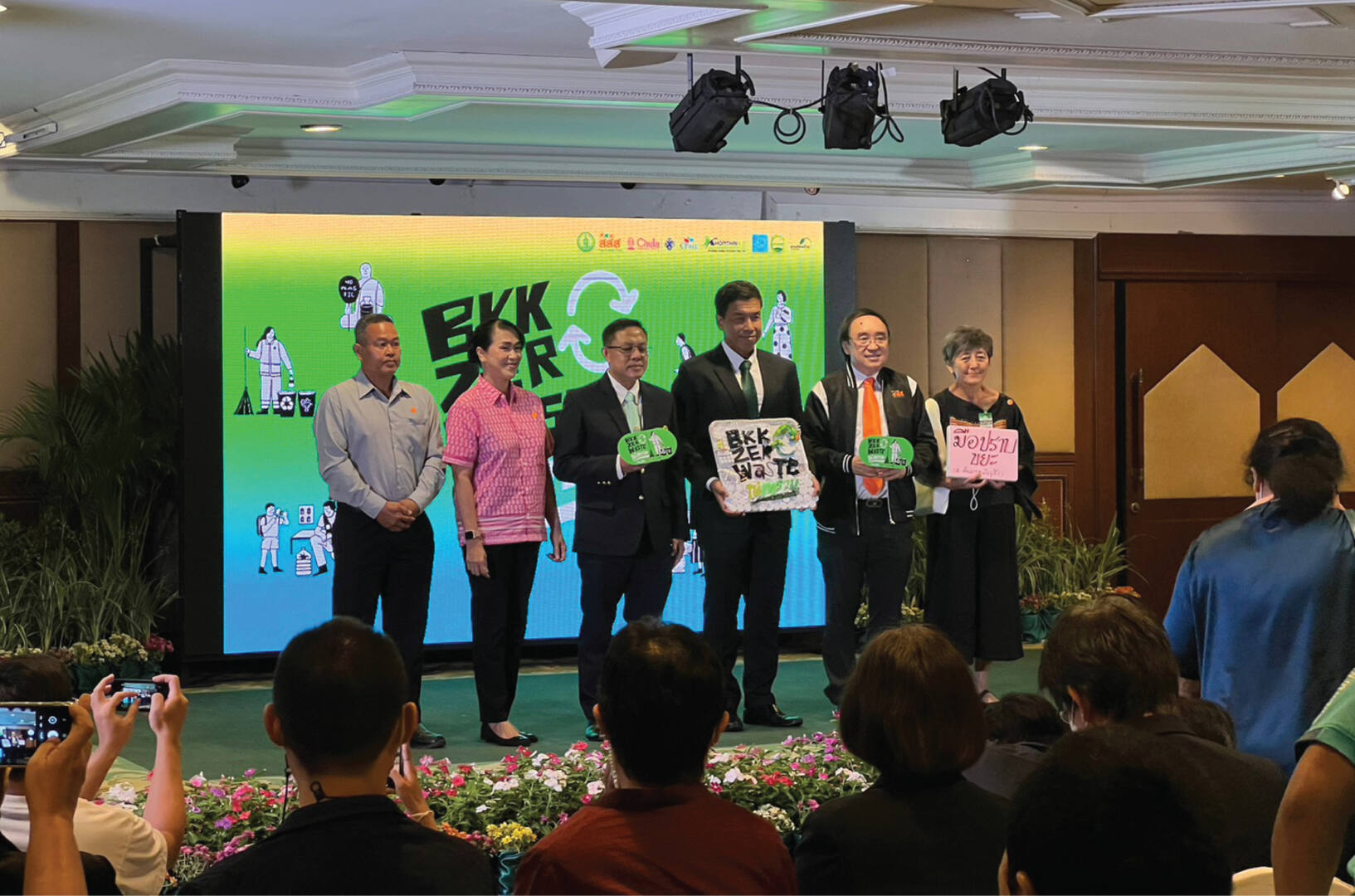
Bangkok Governor Chadchart Sittipunt announced that the “BKK Zero Waste – Building on the ‘Don’t Mix Waste’ Campaign” event demonstrates the city’s commitment to driving sustainable waste management by focusing on waste separation at the source through the BKK Zero Waste network — essentially the second phase of the Don’t Mix Waste project.
Separating Waste to Reduce Budget Burden
Currently, Bangkok spends around 7–8 billion THB per year on waste disposal — a figure that is higher than the city’s public health budget (6 billion THB) and education budget (4 billion THB). Improving waste management efficiency would allow these funds to be reallocated to other essential sectors while also helping improve the environment.
The Bangkok Metropolitan Administration (BMA) will systematize operations, set clear regulations, and promote public awareness. However, citizens must also take part in solving the issue. Waste management is an urgent matter that requires cooperation from all sectors. On average, each Bangkok resident generates 1.5 kg of waste per day, which amounts to 800 kg per year.
Governor Chadchart added that the city is considering incentives to encourage more waste separation — such as discounts for those who separate waste — but this will require clear criteria to distinguish between households that do and do not participate. Another proposed measure is to impose higher fees on large waste generators, further motivating waste reduction and proper separation.
Phase 2 – Engaging Organizations in Waste Separation
BMA Advisor Pornprom Vikitsreth noted that in 2022, Bangkok generated an average of 8,979 tons of waste per day (around 3.27 million tons annually). The Environmental Department reported that 55% of this waste is organic, much of which is still not managed effectively.
The “Don’t Mix Waste” campaign was launched in September 2022 with three phases:
- Phase 1: Encourage the general public to separate wet and dry waste, enabling dry waste to be recycled and improving the health and safety of waste collection workers. The pilot was launched in three districts — Phaya Thai, Nong Khaem, and Pathumwan.
- Phase 2: Engage medium and large organizations, as most waste originates from large entities such as markets, shopping malls, hotels, offices, and temples. In 2023, over 700 organizations across all 50 districts joined the program to separate waste at the source, helping reduce BMA’s waste disposal costs and freeing funds for other uses.
- Phase 3: Invite environmentally conscious individuals to voluntarily separate waste, with educational promotions at district offices, shopping malls, and petrol stations.
If you’d like, I can also rewrite this into a concise, press-release style that would be suitable for publication on environmental or corporate sustainability platforms. Would you like me to do that?

Three Pilot Districts Lead Waste Separation Efforts
Mr. Supreda Adulyanon, Manager of the Thai Health Promotion Foundation (ThaiHealth), stated that municipal solid waste impacts both public health and the environment, particularly through toxic substances from waste. While waste issues have been long recognized, effective solutions require collaboration across multiple sectors. Bangkok must take the lead, as it produces the largest volume of municipal waste in the country — around 12,000 tons per day, accounting for 18% of Thailand’s total waste. During the COVID-19 pandemic, waste generation was estimated at 30 million tons per year. Additionally, one-third of all food in Thailand is discarded as waste, often disposed of improperly, leading to pollution.
“Waste reduction must start at the source. We must separate waste so that midstream and downstream processes can function effectively. Bangkok has begun with three pilot districts, with ThaiHealth coordinating with various agencies. These three districts have proven that such policies are feasible and can serve as models for nationwide expansion,” said Mr. Supreda.
Mr. Phanthawat Sumpanpanich, Director of the Environmental Research Institute, explained that the pilot program in these three districts focuses on four key goals:
- Developing waste management models under the “Don’t Mix Waste” concept.
- Creating a comprehensive database for 33 targeted districts.
- Encouraging 84 communities to reduce waste at the source by at least 20%.
- Supporting organic waste management through the use of composting methods such as black soldier fly larvae.
If you want, I can also compile this with the earlier BKK Zero Waste Phase 2 section into a single, well-structured English article for environmental or CSR communications. That way it flows as one complete story. Would you like me to prepare that next?
OKLIN – Eco-Friendly Food Waste Composter
Turns food waste into dry fertilizer within 24 hours. It handles liquids without the need for separation, requires only a one-time microbial starter with no refills for its entire lifespan, and uses natural microbial decomposition that is safe for the environment. The process produces ready-to-use organic fertilizer and requires no filter changes, reducing hazardous waste. An Australian innovation, it is easy to use for both households and industrial applications.
Household model: 79,000 THB
Industrial model: Free site survey and waste volume assessment
Contact Line: @oklinthailand

